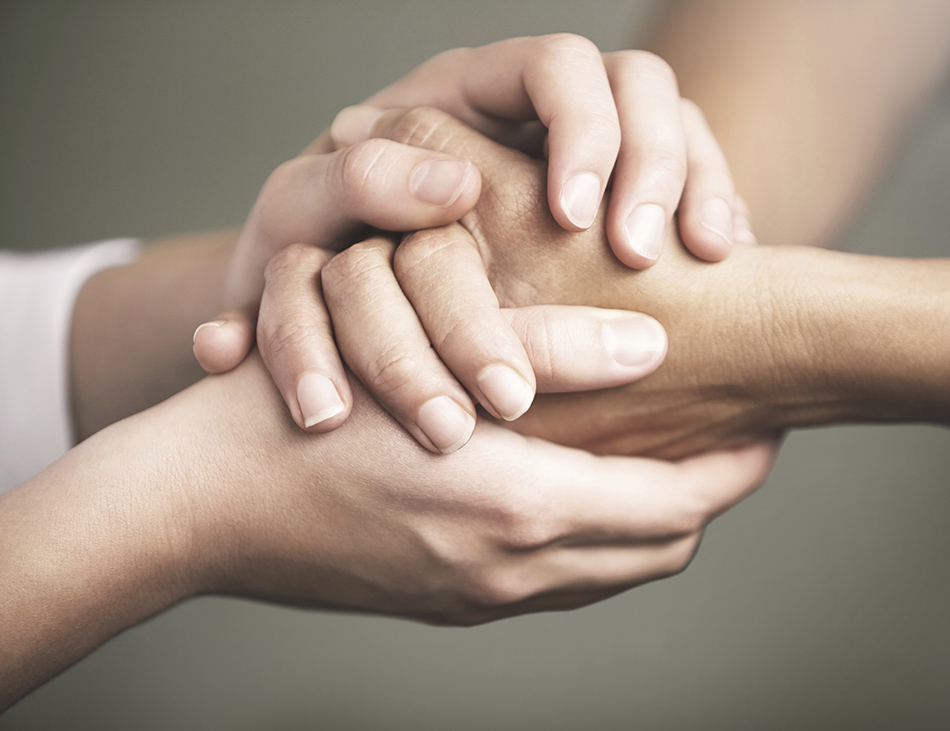How can I help my depressed friend?
How can you support someone with depression? Our agony aunt, Mary Fenwick, offers advice

My friend has had depression for three years now and at first I did everything in my power to help her. I took her on holiday, went round to help with the housework and was there for her 24/7. But after three years, I’m finding it very exhausting. She’s always so negative and she won’t enquire about counselling or alternative therapy. I feel annoyed by her lack of motivation to seek help. What can I do? Name supplied
I hope this will come across with sympathy, but I fear you may have become part of the problem. I mean that in at least two aspects. First, depression is sometimes described as the ‘common cold’ of mental health, and there is evidence that it is just as contagious. We pick up micro-clues from other people all the time, on a level we are hardly conscious of, and it’s a tough job to maintain your own perspective against the powerful sucking force of depression.
After time in your friend’s company you’ll feel some of her inertia, hopelessness and general ‘what’s the point?’ attitude. To be of the most use, you may need to limit your exposure – remember to put on your own oxygen mask first. I suggest the TED talk by psychologist Guy Winch on emotional first aid (see More Inspiration).
Second, it sounds as if the two of you have become entrenched in your respective roles of victim (her) and rescuer (you). I am in no position to criticise either of you – I’ve been both victim and rescuer at different times in my life. Anyone who works in therapy or coaching is aware of the seductive voice whispering – ‘put on your cape and fix this!’ Carl Jung called this concept ‘the wounded healer’: that our own pain can be the power that drives us to help others.
The danger is that we find it so satisfying we unconsciously seek people in trouble so we can keep helping, and keep feeling good about our heroism. Giving help can be good for our mental health, but continuing to do nothing apart from give help does not make a friendship.
My major concern though, is that I’m not even sure from your letter whether your friend has a formal diagnosis of depression. Other factors can cause low mood – an undiagnosed thyroid disorder or the side-effects of certain prescription drugs (including some for acne, asthma or to stop smoking). I
’m alarmed because the yardstick for investigating depression is when low mood has persisted daily for two weeks, without an obvious external cause such as bereavement. It’s heartbreaking to think that your friend may have been suffering for three years, without even a blood test to eliminate other causes.
Here’s what you can do – acknowledge that you’ve taken on the role of being a carer for your friend and that it potentially takes a toll on your mental health. On the website for Mind, the mental health charity, there is a section under ‘Depression’ that talks about how friends and family can help.
At the most basic level, if you can get your friend to walk outside for 20 minutes most days, ideally in a green space, this will help her energy levels, but the priority needs to be getting her to accept a medical assessment.
Sorry to be so prescriptive, but there is no alternative to a trip to the GP. You cannot fix this on your own.
More inspiration:
Watch Guy Winch’s TED talk on emotional ‘first aid’ at ted.com/talks/guy_winch_the_case_for_emotional_hygiene#t-125032
Mary Fenwick is a business coach, journalist, fundraiser, mother, divorcée and widow. Follow Mary on Twitter @MJFenwick. Got a question for Mary? Email mary@psychologies.co.uk, with ‘MARY’ in the subject line
Photograph: iStock








